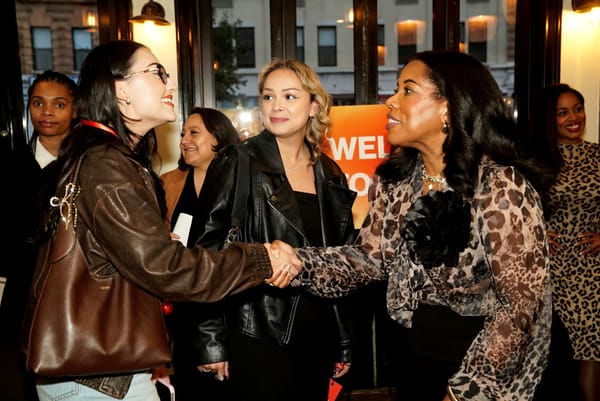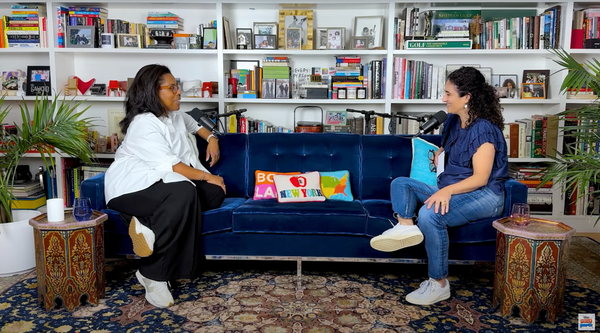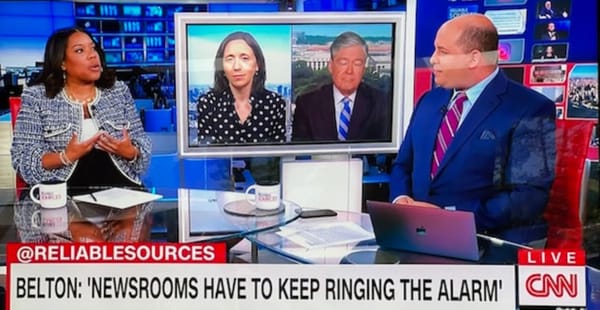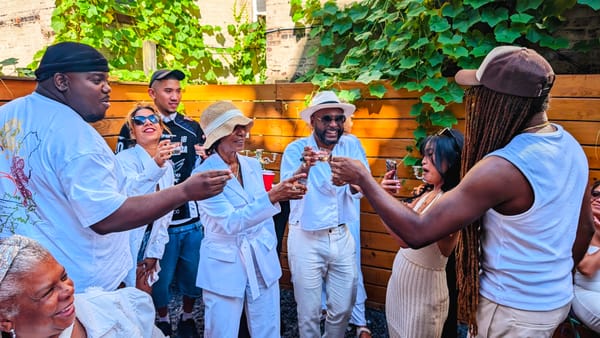Black, Bougie and...Broke? My Life in the High-Low Class
When it comes to class signifiers, I'm every woman.
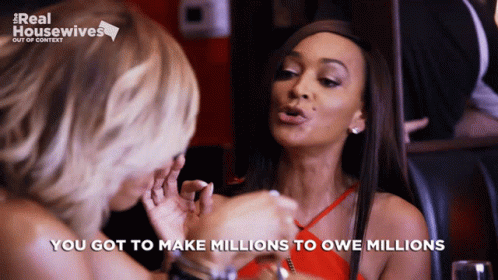
Years ago, after I first became managing editor at The Root (and later its youngest and first editor-in-chief), I interviewed comedian Mike Yard, who at the time, was on Larry Wilmore’s old show on Comedy Central. I was wearing a very conservative blue dress and my hair was as it always was back in 2016 — long and straightened while being loosely curly. Despite my best efforts to reject my girliness, I was obviously a “lady person” who was into “the lady things” and seemed ridiculously bougie because that is who I am. Mike, a lovely individual, was from St. Croix but spent his teen years in East New York.
East New York, for those who know nothing of this Brooklyn enclave, is interesting. And by interesting, I mean, it’s mostly older housing stock, car washes, very suspect-looking motels, gas stations, fix-a-flat places, and a police department folks seem to take issue with for one reason or another. And, I got the impression while talking to Mike for our interview that growing up there in the 80s and 90s was not for the faint of heart.
But something funny happened while we chatted. He asked me what I knew about “mayonnaise sandwiches,” joking, “I bet you don’t know nothing about that!”
The Substack of the Writer Formally Known As The Black Snob is a free, reader-supported publication. To receive new posts and support my work, consider becoming a subscriber.
Upon which I said something like: “I never ate a mayonnaise sandwich although my baby sister did sometimes when we were little. I preferred fried bologna sandwiches.”
And Mike said something like: “Oh wow, I thought you were bougie-bougie. You got some hood in you after all!”
Of course, I laughed because I’m about as “hood” as a Harlem toile scarf designed by interior design maven Sheila Bridges. Meaning… not. At. All. But I have been to the “hood,” lived in various “hoods”… as *cough* an adult gentrifier, and my favorite cultural period in American history is the Harlem Renaissance.
Years later, in Paris, France, I would have a very similar conversation with hip-hop icon, GZA of the Wu-Tang Clan during the Clan’s 36 Chambers anniversary tour in 2019. We bonded over all the gross things we ate as kids: from cut-up boiled hot dogs to Vienna sausages to Velveeta to, again, fried bologna.
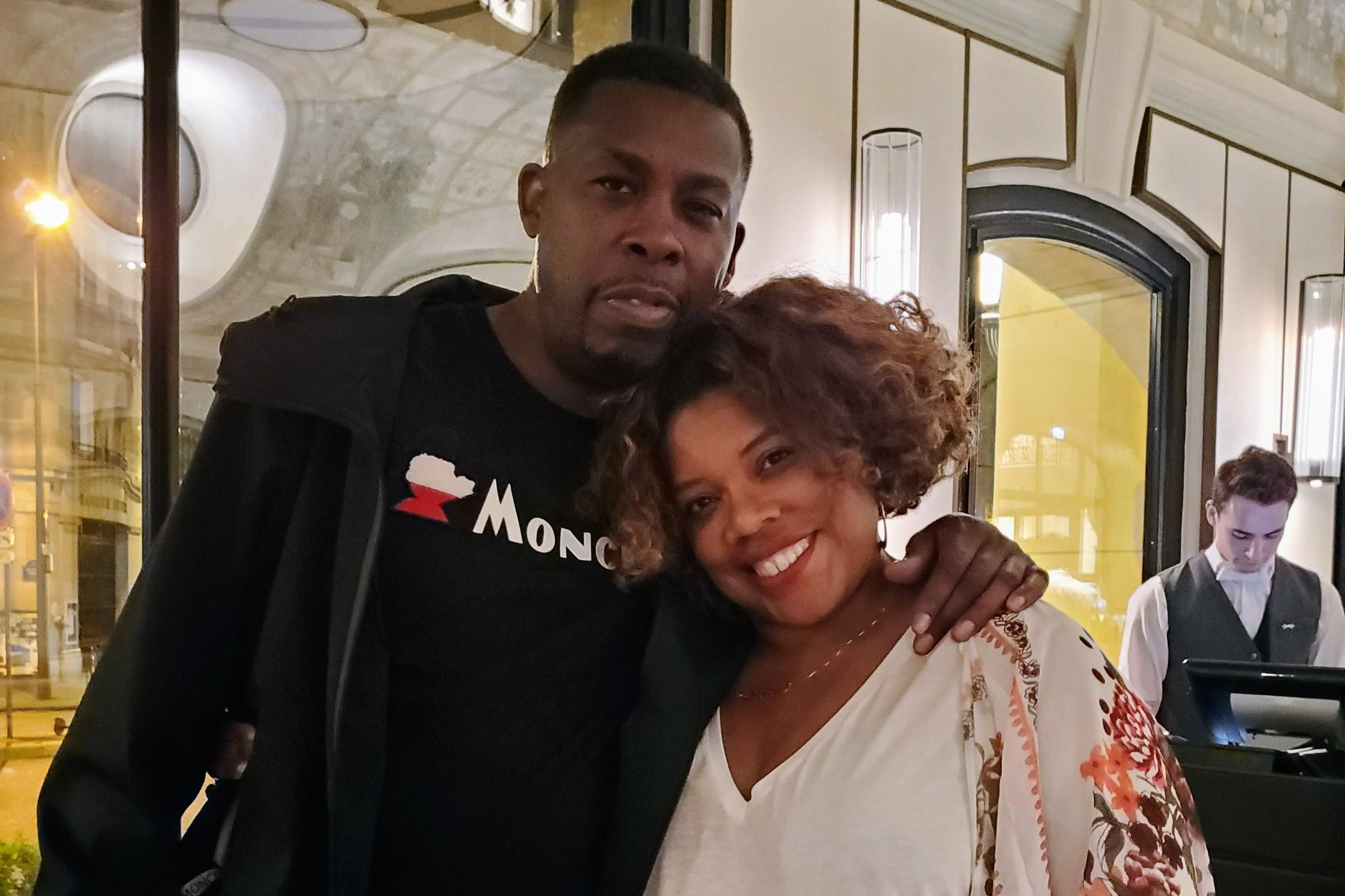
(I admitted that what killed fried bologna for me was when I started the first grade, I asked my mom to pack me a fried bologna sandwich for lunch only to learn that fried bologna, once cold, is absolutely disgusting.)
For some reason, these shared experiences of “gross” foods that were common amongst working class and poor people in the 70s through the 90s was the great uniter for me and other Black people who grew up differently from me. I grew up in this in-between space where we were better than upper middle class, but my parents were from humble beginnings and not bougie, especially my mother who was hostile to the idea of bougie Blacks. This was mostly because she had felt belittled and shunned by them, being a deeply impoverished country girl from Jackson County, Arkansas who sometimes had to choose between sanitary napkins and food in college.
Meaning, I have almost nothing in common with most Black people who grew up in our tax bracket because my parents didn’t do any “bougie Black people” stuff. No Jack and Jill, no cotillions, no overseas vacations, no convertibles for my sweet 16, no fancy private school education, and no over-the-top birthday parties. But I also have very little in common with people outside of that bracket, as I once got screamed at for forgetting to lock my friends’ car doors in college because I hadn’t ridden in a car with automatic locks since I was about 5 or 6.
Most kids at school, especially after we first moved to the “white” end of the school district, assumed my family was poor. My father had raised us to never talk about what we had or money, so we never dissuaded anyone of these notions. While everyone else was in their Guess jeans and Nike tennis shoes, I was wearing “name brand” clothing from Marshalls where the tags were ripped out so you wouldn’t know what name brand it was, and pain-inducing, cheap sneakers from Payless ShoeSource that my pinky toes still bear scars from. Also, my father was hardly ever at school or at any of my events because he had to work, so people just assumed I didn’t have one. Folks were shocked when they learned my mom didn’t work and that we lived in a four-bedroom ranch home in a then-tony suburb where everything was named after horseracing.
In college, this was somewhat similar, although if folks actually paid attention or went to my dorm room, it was pretty obvious I was only cosplaying as a broke college kid. I didn’t have a car like a lot of my friends, so people assumed I was poor, but in my dorm room, I had an endless wardrobe, a personal desktop computer, and a cell phone back in 1996 back when most students had none of these things. Especially at my college, which I once joked was the K-Mart of higher education.
I always, always felt like I was living a lie when it came to what “class” I actually was back then. I knew nothing of the Bougie life, so the so-called “rich” kids mocked, shunned, or didn’t even know I was alive. But I also knew nothing of struggle, so I got bullied a lot by the poorer kids, who saw me as an annoying imposter when I tried to bond with them.
As a high school freshman, a girl who I thought was my friend launched into a tirade about how my mother was my father’s “slave” because she was a stay-at-home mom and that REAL women worked, while men, like her father who had abandoned his family, weren’t dependable. Therefore, according to her, my mother’s marriage had to be awful. This, of course, was very, very far from the truth of my mother who was basically Martha Stewarting her way through domestic bliss — crocheting blankets, making elaborate crafts and decor, and baking delicious cakes. I remember being confused and trying to reason with her about how my parents were equals, shared everything, and made all their decisions together, while my mom’s name was on everything from the house to the cars, but that only made her more angry.
We didn’t stay friends much longer after that.
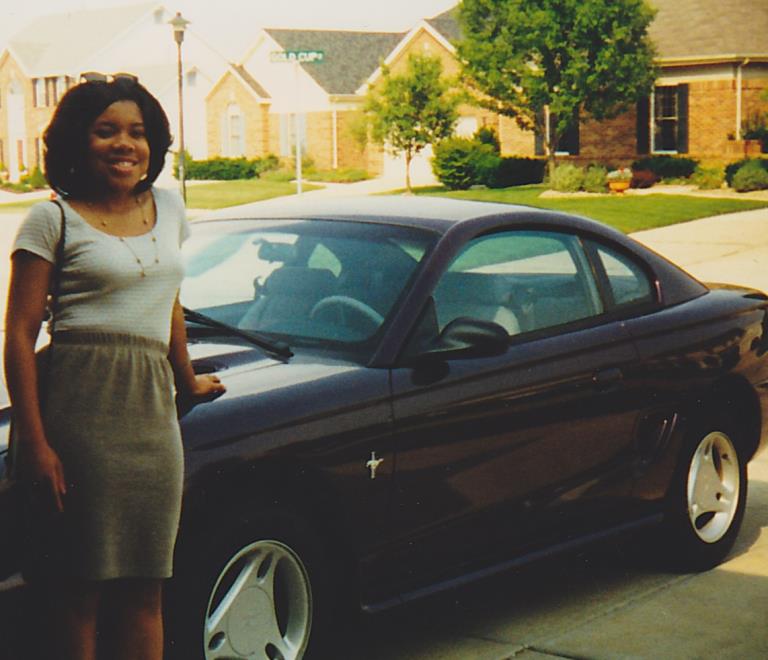
Another time, at 15, I had a crush on a very hardscrabble young boy in my class as a sophomore. I would help him with his homework in hopes that one day he would like me. When my friends found out about the crush, one said she thought this was “odd” because the boy seemed too “niggafied” for someone like me. Then, another girl, who for whatever reason had a real hard-on from mocking me and making me miserable, found out I liked him, and teased me about it in class. I (who had very little control of my emotions back then) had a complete meltdown. I ran out of the classroom screaming and crying, waiting it out in the bathroom until after the late bell rang, then went back to the classroom to get my things to find the girl still there. She chose to be late to her own classes just so she could continue to mock and berate me.
Classy.
She, of course, told everyone I was crazy, including the boy, and he stopped speaking to me altogether.
But my efforts to fit in were always met with the oddest responses from the other kids and teens, mostly because there was no way for me to fit in. Even though I lacked the ability to be truly invisible due to my over-the-top, extroverted personality (I was “popular” only in the sense that people knew of me because I demanded to be seen whether or not anyone wanted to look at my ass), my parents, and how they’d chosen to raise us, made us outsiders, unable to ever figure out what crew we could get in with. I didn’t really have good friends until almost my junior year of high school.
This, of course, wasn’t all the fault of me being in no-woman’s-land in the working class/Bougie Black divide. I was high-strung. I was extremely sensitive and emotional, and until the fourth grade, a know-it-all narc. I was obsessed with being “good” and wanting the teacher to like me because all teachers to me were just extensions of my mother.
So, yes, I was the kid in elementary school who called the teacher “mommy”… twice.
I say all this to say that this wasn’t just about class signifiers and cruelty. I’m keenly aware of the role I played in my own loneliness and torment as a child.
Still, it was annoying in a pathetic, tragic “County Brownie” kind of way.
My life was a series of class contradictions. I had the grades and extracurricular activities to get into a much better university but I ended up going to a school that was then best known as the place where 30-year-old burnouts tried to bang 18-year-olds because my mom didn’t want to spend $20 on an application fee.
On the one hand, I totally understood why my parents were so frugal. Most people wear all their wealth on their backs in an effort to keep up with the Kardashians or in my “Shiny Suit Era” day, Cosby kids or whatever they were wearing on A Different World and The Fresh Prince of Bel-Air. If given the choice between my father paying for college and buying me a car for graduation versus having a Super Sweet 16 and Guess jeans, I would have still picked being college debt-free and the car. But on the other, it was like my Silent Generation parents didn’t get anything we were going through because it was just too foreign to them. And like most people of their era, they never asked questions as to why my sisters and I wanted to be more like everyone else. I think they thought we only wanted things out of vanity as opposed to wanting to not provide more fodder to superficial bullies and desiring to “fit in” with our social set. We were cute kids and we were smart, but if you didn’t like us because of these things, you could always attack our cheap-ass shoes. People were so cruel to my younger sister that I used to retort in her defense that at least we looked good in our JC Penney jeans whereas they were spending $100s of dollars to still look like crap.
Nikes don’t fix ugly on the outside or inside. But it didn’t (and still doesn’t) stop people from trying.
While in our MTV generation-era high school, we were outcasts. To our country cousins from rural Arkansas and our city cousins from the Southside of Chicago, we were “rich.” My more impoverished tormentors thought I was a painfully uncool and uninteresting poseur. Those who were wealthy and ignored me thought I was an invisible nerd wearing Spring ‘92 edition Sears Outlet. I wish none of this mattered, but for at least a bulk of my adult life, it affected me deeply as I didn’t belong anywhere, and everywhere I went I felt like I was faking the funk.
Even to this day, where I live a pretty nice life and my long-time friend/fake big brother, Jada, mocks me for how tragically bougie I am, I still get a little nervous when I have to be around uber-wealthy people for some of the same insecure reasons my mother didn’t like being around them. Usually from the fear they can somehow smell the delicious but not-really-cheese Velveeta on me.
Fortunately, in Negrotopia, (a.k.a Obama-era Washington, D.C.), I was not alone in being a woman without a social class. There were plenty of people who knew the disgusting disappointment of cold fried bologna, Top Ramen, and being unable to afford to travel home on the holidays, even though they would pretend like they didn’t know what people were talking about if it came up in “mixed” company. I could go party at the White House and at the W Hotel with the Braxton sisters and still joke about having less than $100 in my bank account.
I was essentially a “fancy” broke person. I could barely afford my deeply discounted rent for my furnished “garden” apartment on Capitol Hill, yet, I lived on Capitol Hill when the houses were going for millions and people just assumed you owned something if you lived there, and could also pop up at exclusive parties hosted by Essence Magazine during Congressional Black Caucus Week, dancing the night away with the likes of El DeBarge and various hoi polloi posing as aristocrats.
I owned nothing but the clothes on my back and the many old laptops, hard drives, and computers I’d gone through since college, but most people didn’t know that. I also had a blog at the time called “The Black Snob,” so people assumed I came from money, which was partially right, but also very, very wrong. Usually, when people started to pry, I would say I was personally broke, but my parents were doing just fine. But I also was constantly making up excuses why I couldn’t join my friends in Martha’s Vineyard for vacations because, ahem, I could not afford any kind of vacation on my freelance writer/blogger salary of $45,000 a year.
Even now, I still feel very broke. Mostly because I’ve never owned property, purchased a car on my own, had kids (which have become a signifier of wealth … who can afford kids these days!), or turned into a “real adult” who “does adult things.”
Today, my favorite shows to watch — aka “Real Housewives of Every City Except Orange County” — are all about “aspirational wealth” where quite a few of the so-called Housewives are not actually wealthy but are really just severely in debt and two bad decisions from jail time.
I, at times, don’t think these women know what class they are either, considering on this season of The Real Housewives of New York City everything got turned on its head. Formally a show about white socialites and aspiring white socialites from the Upper East Side who would NEVER go to Brooklyn for ANYTHING, it is now a multicultural mishmash of different versions of Bethenny Frankel. The new gaggle of not-quite-Housewives on an episode from the newest season bitched about actual rich person Jenna Lyons choosing to fly first class without them on vacation and also went in on fashionista Jessel Taank for being vague about her possibly posh background. Half the women were doing different versions of what the “County Brownies” used to do in St. Louis when I was a kid, which was argue over which now rich person once had it harder. Or, in the case of my high school and what Jessel was doing, which County Brownie’s parents, uncles, or grandparents had it harder.
The whole “my grandparents picked cotton!” argument versus “my parents grew up in the hood… like the real hood, not the fake one!” while they were all living in McMansions and wearing Jordans was weird.
This new version of RHONY was such an odd turn from the previous iteration that involved falling down drunk in posh estates on St. Barts and in the Hamptons, banging French “pirates” who looked like Johnny Depp, while flying in helicopters and private jets. (First class was for people who couldn’t get their friends to fly them out of the Berkshires to the Hamptons on their own personal aircraft.)
But even THOSE women were broke half the time too, usually from either divorces, poor decisions, or playing “keeping up with the Bethennys.”
Anyway, I’m tired.
I was telling this to my therapist recently, mostly about how I don’t feel like I belong anywhere while at the same time, I belong everywhere. I’m a rich, broke person whose parents both chopped and picked cotton as kids, who grew up working-middle-upper-middle class and who is somehow overly educated while only having an undergrad degree from a college for people who can’t afford college who only breaks out her Gucci tote bag when traveling because I am too embarrassed to carry it anywhere else.
I can speak the “King’s English” but understand AAVE. I’m the only person in New York City who has an Android phone and PREFERS IT. (Fuck peer pressure! Everything your iPhone does, my Samsung did years ago!) I also know for a fact that Velveeta is excellent for helping the harder-to-melt cheeses blend in when making any kind of macaroni and cheese, but don’t tell the wannabe socialites because they’ll gag.
I mean, they still eat it and love it when I serve it to them, but shhhh! It’ll just be our little secret!
As for me, Mike Yard, and GZA, we’ll always have Vienna sausages, and how much we now refuse to eat them.
